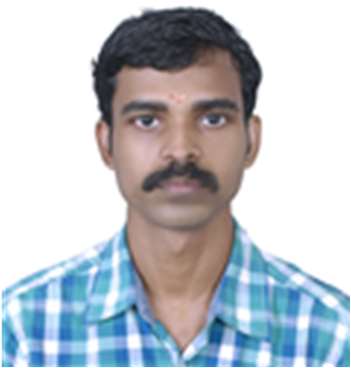Invited Speaker

Dr. Baiju V
Department of Mechanical Engineering, TKM College of Engineering, IndiaSpeech Title: Experimental Investigations of Solar Hybrid Atmospheric Water Generator for Potable Water Generation
Abstract: Water scarcity has become a prominent global issue in recent times. The availability of freshwater is crucial for economic development in small communities located in remote areas where naturally occurring freshwater is scarce. Atmospheric water generation is a suitable issue to address the water scarcity. Traditional water extraction methods are marked by high power usage, large size, non-potable water output, and potential noise issues. Adsorption techniques offer a more cost-effective alternative for atmospheric water extraction. The present hybrid system comprises of multiple components: a blower, adsorption unit, heating unit, condenser, and TEC unit. The blower supplies air to both the adsorbent bed and the TEC unit, where cooling occurs, leading to water vapour condensation. Peltier modules in the TEC unit convert electrical energy to facilitate cooling. A dedicated cooling water circuit and external DC fan dissipate system heat. Dehumidified air from the TEC outlet pre-cools air in the adsorption chamber. Air from the blower combines with this dehumidified air in the adsorption unit, where water vapour is adsorbed until saturation. Vacuum pressure induced by a vacuum pump initiates desorption, elevating relative humidity within the chamber. The condenser, at lower pressure than the adsorbent bed, facilitates water condensation. Solar power sources, including a solar panel and solar collector, minimize system power requirements. The proposed hybrid system utilises adsorption and Peltier effects to produce potable water. The system is designed for 3 L/hr is fabricated and the experimental investigations are conducted at the Energy Research Lab TKM College of Engineering Kollam. The effect of heat source temperature, evaporator temperature and condenser temperature on water yield are studied and compared with the theoretical value. The system is combined with the thermal collector of 7m2 area with a secondary reflector, to combined with the thermal compressor. The Therminol 55 is the working fluid circulated across the solar thermal collector. The hybrid system produces an actual water output of 1.12 L/hr under standard atmospheric conditions, characterized by a relative humidity of 75% and a temperature of 28°C. The proposed system produces 57% better water yield when compared to the system with adsorption alone. The proposed hybrid system proves to be an efficient and economically viable solution for addressing the water scarcity in remote and rural areas of the country.
